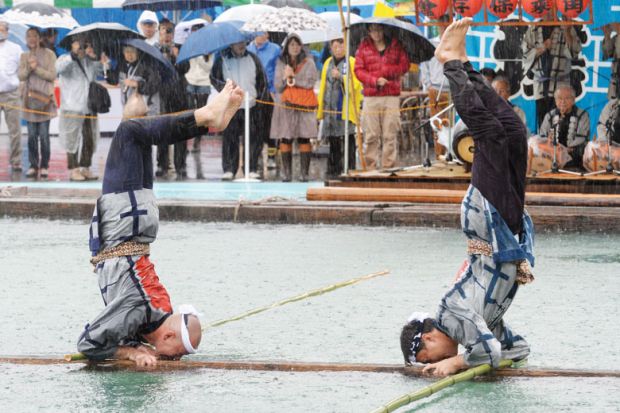Academics are growing increasingly wary of recommending Japan as a study destination while its borders remain largely shut to learners.
Tens of thousands of students stuck outside the country for nearly two years have grown increasingly desperate at coronavirus-driven entry restrictions, with some forced to forfeit scholarships and abandon travel plans. Now, professors, too, appear to be going cold on Japan.
“I am very reluctant to encourage students to apply for programmes in Japan now,” said Síle Nic Chormaic, a professor of physics at the Okinawa Institute of Science and Technology Graduate University (OIST). Since March 2020, her lab has in effect been cut off from any influx of new talent, she said.
“I have been unable to bring intern students from a number of countries in to OIST. This has continued unnecessarily, and the expectation that students have nothing else to do but put their lives on hold is cruel.”
THE Campus views: How can we solve Japan’s student mobility issues?
She said one student, an Afghan woman who needed to travel without delay because of the political situation in her country, has since opted to move to Switzerland to pursue a PhD. Meanwhile, Professor Nic Chormaic’s 2021 PhD students are still stranded outside Japan – and unable to carry out experimental work.
“Many have delayed their PhD commencements until May 2022 in the hope that the border will open,” she said.
Professor Nic Chormaic’s research collaboration with a Chinese university has also come under strain: “I am supposed to host two visiting PhD students from Harbin on this collaboration…I am no longer able to fulfil my commitments on this project.”
Scholars outside Japan voiced similar frustration with the government border policy.
Melek Ortabasi, an associate professor in the department of world languages and literatures at Simon Fraser University in Canada, bristled at an email she received recently from Japan’s Ministry of Education, Culture, Sports, Science and Technology (MEXT) asking her to promote its scholarships for overseas students.
“I’m currently against promoting it because I can’t tell students for sure that they will be able to enter Japan on schedule,” she said, noting that even MEXT students, who are a “top priority” for visas, have experienced delays.
In January, the Japanese government said it would let 87 overseas students come into the country. But these few dozen students are just the tip of the iceberg; estimates indicate that roughly 147,000 in total could be waiting.
“Since I’ve heard from so many students about the difficulties they’re experiencing, both mental and financial, I’m loath to put other students in a similar position,” said Dr Ortabasi.
Other academics have stopped short of discouraging those they are mentoring from coming to Japan, but they are nudging students to think about backup plans.
“Many of my students want and need to go to Japan because that is where their research focus is,” said Allison Alexy, an assistant professor in the department of Asian languages and cultures at the University of Michigan.
“But I am spending a lot of time trying to help mentor them and brainstorm other options in case they aren’t able to get into Japan. I am worried that these close-minded policies will undo the benefits from decades of funding and educational opportunities for students and scholars.”
Even now, some universities – particularly those that are more reliant on international students – are taking a hit, said Professor Nic Chormaic.
“Already we see a reluctance [by] international students from Europe and the US to apply to our PhD programme,” she said. “They have seen what happened in the last two years and don’t want to become a victim of this policy.”
Register to continue
Why register?
- Registration is free and only takes a moment
- Once registered, you can read 3 articles a month
- Sign up for our newsletter
Subscribe
Or subscribe for unlimited access to:
- Unlimited access to news, views, insights & reviews
- Digital editions
- Digital access to THE’s university and college rankings analysis
Already registered or a current subscriber?










